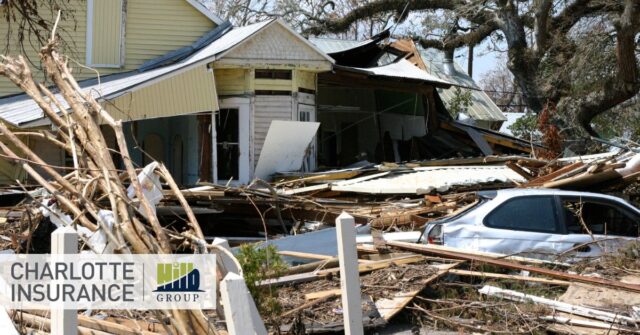Living in an area like North Carolina, where the potential for getting hit by a hurricane is high, means that you need to prepare for the worst. While some more modern homes might be able to withstand the high flood waters and winds of a hurricane, this doesn’t mean that every house can. In order to ensure that you have the insurance coverage required to rebuild or repair your home after a hurricane, you need to have the right policies in place. Since standard homeowner’s insurance often isn’t enough, you should consider specialized hurricane coverage.
What is Hurricane Coverage?
Since you’ll need more than just homeowner’s insurance to cover the devasting damage left behind by a hurricane, insurance companies have put together a package known as hurricane coverage. There are three components to hurricane coverage. They consist of standard homeowner’s insurance, as well as:
- Flood Insurance – Homeowner’s insurance typically doesn’t include the flooding done by large storms, like hurricanes. While it will cover damage from broken pipes, that type of flooding is very different. If you live in a flood plain, you more than likely have flood insurance on your home already, but if you don’t and you happen to live in a hurricane-prone area, then you’ll need to make sure that flood insurance is included in your hurricane policy.
- Windstorm Insurance – As expected, this policy covers damage done by high winds, like those of a hurricane or even a related tornado. Things like missing shingles, torn roofs, damaged walls, and more are all a part of this type of insurance. If you live in an area prone to hurricanes, like North Carolina, then it’s a good idea to have windstorm insurance.
Know Your Deductibles
A deductible is the amount that you’ll need to pay out of pocket should you have to call in an insurance claim. In general, these deductibles are either a flat number, like $500 or $1,000, or a percentage, like 5%. Should you need to call in a claim, your insurer will pay for the repairs, minus the amount of your deductible. For standard homeowner’s insurance, this is easy to determine.
However, when it comes to hurricane insurance, there are several different types of deductibles that may apply to your policy. They include a named storm deductible, which kicks in when your home is hit by a storm that the National Weather Service has named. Hurricanes fall into this category, as they always have a name attached to them.
Other types of hurricane insurance deductibles include windstorm and hurricane deductibles. If your home is hit by a windstorm, even if it isn’t hurricane-related, then that deductible will apply. The same goes for hurricane deductibles, which will apply if your home is damaged by a tropical storm that isn’t named.
Since the amount of the deductible can vary, based on the type of coverage that you have and the situation where the claim is applied, you’ll have to read your policy carefully or speak to your insurance agent so that you’re fully prepared.
Have Questions? Contact Charlotte Insurance
Want to know more about adding hurricane insurance to your current policy? Contact Charlotte Insurance. Our agents can explore and explain all available options to you and put together the coverage plan that you need.

